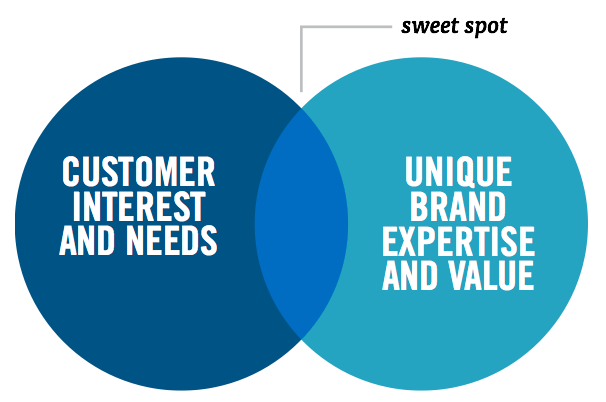
Is your brand aiming to capture millennial attention?
This post examines a few key findings concerning the way they search and the types of information they are most receptive to remembering.
First, we will define millennials as a key market segment. Next, we will delve in to how millennials find information. Finally, we will discuss how to ensure your brand is primed for success to stick out from all the search result noise.
Millions of Millennials
Millennials, or Generation Y, are loosely defined as the group of Americans born between 1977 and 1995. In a recent report by Nielsen, millennials are 77 million strong, making up 24% of the population.
To put it in dollar terms, these 18-37 year-olds (roughly) powered a hefty $600 billion in directly attributable spending in 2013 (Accenture).
Millennials are relatively more focused on entertainment and leisure versus, say, lawn care, due to their life cycle stage. For many restaurants and clothing or lifestyle brands, this puts them at the front and center of marketing efforts. How can your brand ensure its found when Generation Y goes looking for the target of their next spending spree?
Where Millennials Seek Information
How do millennials look for information? First and foremost, its from their peers. Word of mouth, in our connected age, is more important than ever. Millennials trust their peers above professionals (a close second) for recommendations about products.
Search engines and word of mouth were among the top three sources by which millennials reported being influenced for purchases within apparel, packaged goods, financial products, and big-ticket purchases segments. This group tends to rely on recommendations from trustworthy people they know more than advertising, which was past generations' information source of choice.
It makes sense, then, that this generation frequents social media platforms for the inside scoop or opinions from friends, (or pseudo-friends, frenemies... random people who sent them a friend request). Coming in a close second were curated online reviews from sites like Yelp. In fact, Generation Y is much more likely to consume and prefer user-generated content than others.
What does this mean for brands? It's important to give brand-loyal millennials a reason to love you. What does your brand stand for that this group can be passionate about? Chipotle is a key example of fluency in earned media generation in this respect. In fact, cause branding is one proven contributor to igniting fervent fan-ship among this group.
Generation Y and SoMoLo
 Source: Onbile.com
Source: Onbile.comWhen does Generation Y Google? Millennials actually prefer search engines for information on restaurants, nightlife, and local events over social media. The same goes for in-depth coverage of news and other "hard information".
In web design, optimization, and content management, a key consideration is the context of consumption. Two of every three millennials prefer to use mobile devices to search for information on local products or services.
Once again, search engines and the general mobile internet top social media, but this does not imply you should exclude it from your strategy. A key to trust is consistency, so make sure your brand's voice is consistent across platforms, with content tailored appropriately to context.
We have examined more SoMoLo specific information in-depth before. The data on mobile usage incites the above takeaway, along with the now very standard spiel we marketers like to give about being sure your web presence is optimized for searches and screens of all kinds. It truly comes down to being able to walk the walk, right through millennials' daily lives.
What about Generation Z? Check out How Gen Z Goes to College
Seeing is Believing
In my quest for more information on millennial search behavior, I found one key generational difference: mobile video usage. Millennials are more likely to look for product or brand information through mobile video than any other generation. They also forge deeper connections with brands who use mobile video advertisements.
Generation Y is increasing the time they spend watching videos on mobile devices. Why is this important? There are five facts that paint a more vivid picture :
- YouTube is preferred platform of choice for millennials to learn about a product that interests them, above Facebook, Twitter, etc.
- YouTube is the best place for millenials to "explore their passions".
- Watching YouTube based content increases relevant search volume 4x.
- Millennials recall mobile advertising more readily than content consumed on PCs.
- Brands who advertise with mobile video are perceived more positively.

Taken together, these facts indicate mobile video is a must for those hoping to be the end target of millennials' searches.
 Wrong.
Wrong.The following are some key things to think about, as a result:
- What does your brand demonstrably signify that millennials will find copacetic?
- How can you create original, compelling content millennials will want to share with friends?
- Or better yet, how do you plant your brand as the star of user-generated content on mobile devices?
- Millennials are more likely to look for things they are passionate about in video form, so how will you work your company into the hearts and minds of your target audience?
- When implementing mobile video content or advertising, are you prepared to track, analyze, and adjust your strategy to maximize ROI?
In a way, it all comes down to being transparent about your company's ultimate mission and purpose. As a millennial myself, I can totally relate to statistics that say we are willing to pay a bit more for goods and services we believe in. My grocery budget has a few stretch marks from expanding to fit my favorite locally-made goods. What do you think?



